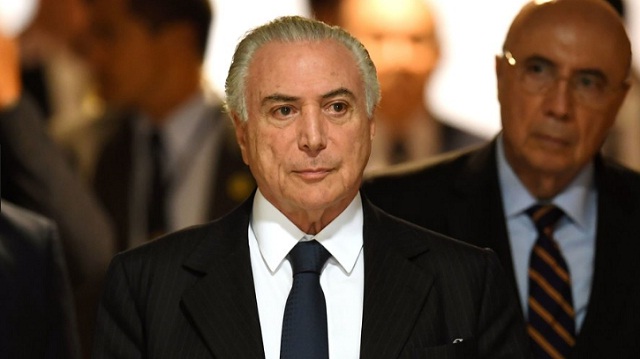
Rio de Janeiro, Brazil | AFP | The takeover of Rio de Janeiro’s security by army generals was meant to bring clarity to a city mired in chaotic crime, but three days later the exact mission remains unclear.
President Michel Temer signed a decree Friday putting the police in Rio under military command, the first such measure since the end of a two-decade military dictatorship in 1985.
Temer said it was “an extreme measure” aimed at getting a grip on runaway violence by organized gangs.
The military is widely admired in Brazil. In fact it’s seen by many as just about the only institution that works properly and is not corrupt.
But does Temer really think the generals can resolve Rio’s deep-rooted problems?
Critics are asking why the government is not, for example, sending more teachers to the impoverished neighborhoods where crime thrives.
“Without quality education we won’t get anywhere. Nothing is done to help the young in the favelas to join the job market,” said Marcos Valerio Alves, who coordinates residential associations in the Complexo do Alemao group of favelas, among the most dangerous in Rio.
“Children only go to school in the morning or in the afternoon and the rest of the time they’re in the street, where they watch other young people walking about with assault rifles. What future can they have?”
– Playing politics –
Sociologist Julita Lemgruber, who specializes in security issues at the Candido Mendes University, said the army intervention “could serve as Temer’s political project.”
The bid to aid Rio has given Temer a welcome break in news coverage from a near constant stream of corruption scandals and his failure to push through controversial cuts to the pension system.
Although he is the most unpopular president on record, there have been growing whispers that Temer may be considering running for re-election in October.
He has previously indicated he would not try but an improving economy, after two painful years of recession, may give him new confidence.
“His popularity is rock bottom and he is trying to change the tendency to see if he could manage to be a candidate,” Lemgruber said.
The problem for him, she said, is that there’ll be no quick, convincing fix in Rio.
“You can get short term results but it will be difficult to reorganize the police in that period.”
 The Independent Uganda: You get the Truth we Pay the Price
The Independent Uganda: You get the Truth we Pay the Price



